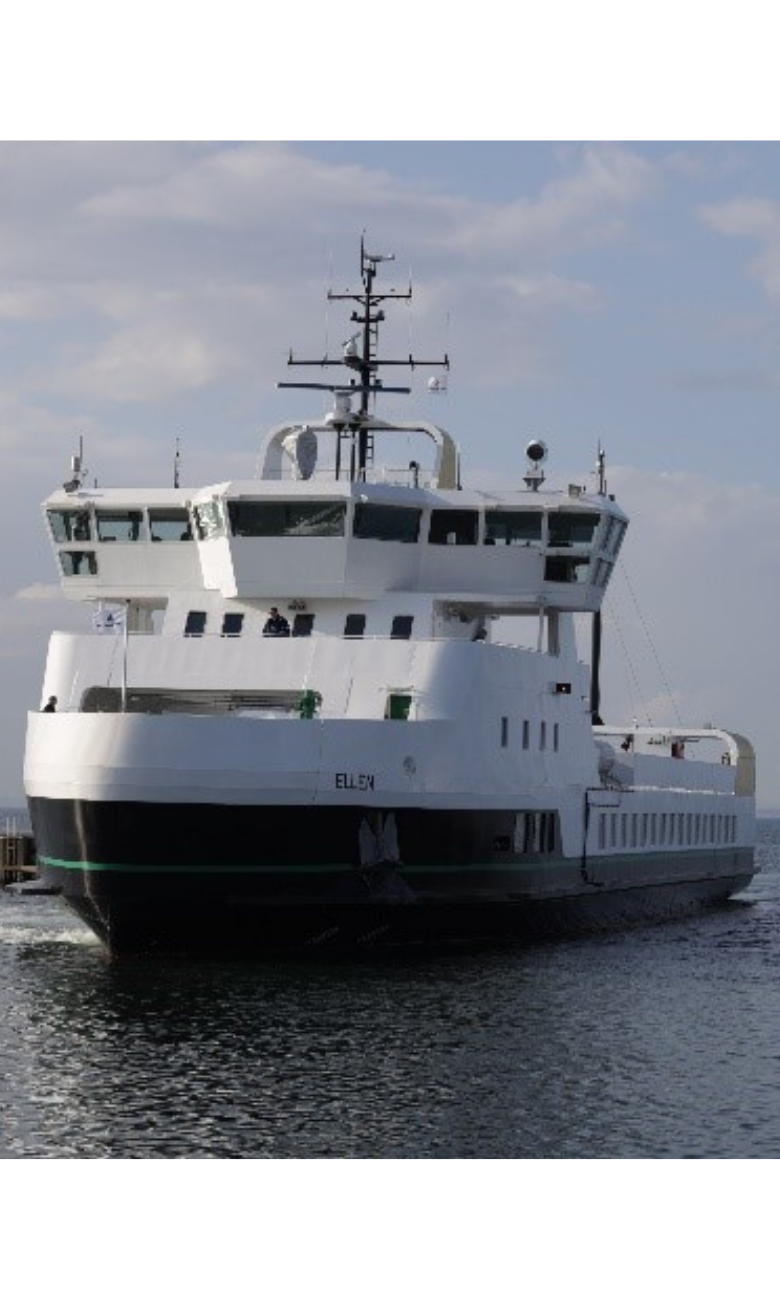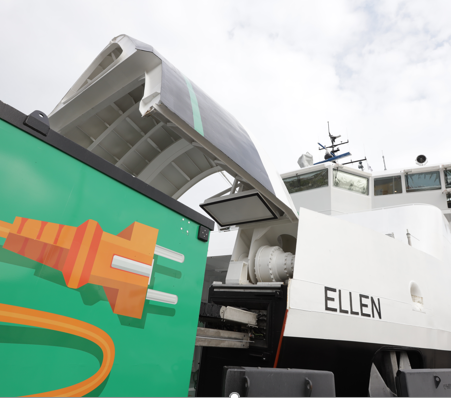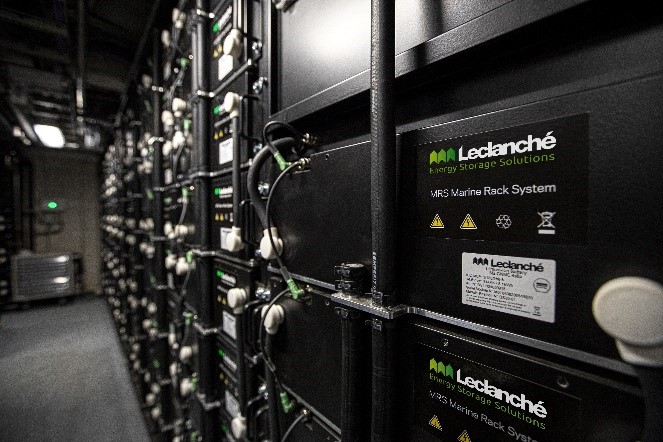Full speed ahead thanks to Swiss batteries
All aboard Ellen, the world's largest fully electric-powered ferry. As it makes its regular crossing, there is none of the noise or the fumes and smoke of a diesel engine. Without a single drop of heavy fuel oil, Ellen has paved the way for further advances in electric maritime mobility. The electrification of shipping is gaining ground, making an important contribution to emissions-free transport. Among the global leaders in innovative e-transport solutions are Swiss companies such as Leclanché.
As passengers board Ellen in its home harbour on the Danish island of Ærø, the world's most powerful e-ferry to date recharges its batteries in 30 to 60 minutes with a record capacity of 4.4MWh. This 60m vessel, weighing almost 750 tonnes, has one of the world's largest battery capacities installed on a ship.

Ellen has sailed between the Danish islands of Søby and Fynshav since summer 2019. It makes the crossing five times a day with up to 200 passengers and 40 vehicles on board. At 41km for the return trip, its operational reach is currently seven times further than other electric ferries. The journey length is a decisive factor in the choice of engine propulsion: the longer the distance, the more efficient the technology becomes.

A Swiss company sets sail
With its muted engines running on 56 tonnes of lithium-ion batteries, Ellen guarantees a quiet crossing. Swiss firm Leclanché is one of the key factors behind the success of this fully electric-powered ferry. As a world leader in the production of energy storage systems, Leclanché equips a wide range of systems and vehicles worldwide with batteries, among them the Danish ferry Ellen. Leclanché specialises in the production of lithium-ion cells, which are mainly used in the renewable energy sector. A number of safety innovations were introduced on this ferry, in particular to prevent fires caused by batteries overheating. If the battery temperature were to rise, it would be automatically cooled down by an injection of foam. There is no stand-by diesel generator on board. A certain amount of energy is stored in each battery room at all times. Should one battery room ever need to be switched off, the energy from another room could be used to bring the ship safely to port. No heavy fuel oil is used to run the ship. Ellen thus paves the way for the sustainable retrofitting of vessels.

The age of electric mobility
The transport industry faces a major challenge in having to develop greener technologies to reduce pollutants – in both passenger and freight transport.
In freight transport, 13% of CO2 emissions in the European Economic Area alone are attributable to maritime transport. European businesses and consumers are heavily dependent on goods imported from all over the world, and shipping remains the cheapest way to transport goods around the globe. Almost 90% of the EU's external freight is carried by sea. The European Environment Agency estimates that maritime transport accounts for around one billion tonnes of CO2 emissions every year. According to a report from the International Maritime Organization, global shipping could lead to an increase of up to 250% in greenhouse gas emissions if appropriate measures are not taken.
The future of motorised passenger transport is no longer limited to electric cars, trains and trams, as shipping now also joins the revolution in electric mobility. Even though passenger transport accounts for only a small proportion of shipping emissions, examples such as Ellen are promising. Ellen is expected to save around 2,000 tonnes of climate-damaging CO2 a year. This may be literally a drop in the ocean when compared with global greenhouse gas emissions, but it is an important step towards a greener shipping industry.




